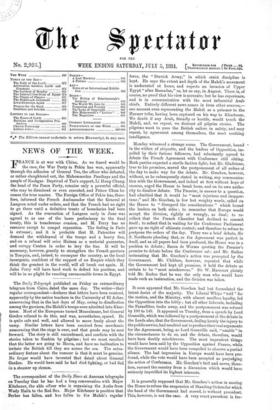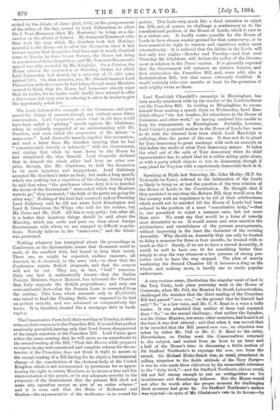It is generally supposed that Mr. Goschen's action in moving
the House to refuse the suspension of Standing Orders for which the head of the Government had moved, is without precedent. This, however, is not the case. A very exact precedent is fur- nished by the debate of June 22nd, 1863, on the postponement of the orders of the day, moved by Lord Palmerston, to allow Sir J. Pope Hennessy (then Mr. Hennessy) to bring on a dis- cussion on the affairs of Poland. Mr. Somerset Beaumont (who then took the step which Mr. Goschen took last Monday) appealed to the House not to allow the discussion, since it had become known that despatches had been sent in nearly identical terms to Russia by three Great Powers, the House not being in possession of those despatches ; and Mr. Somerset Beaumont's appeal was ably seconded by Mr. Kinglake. On a division, the House refused the suspension of Standing Orders for which Lord Palmerston had moved, by a majority of 55 (165 votes against 110). On that occasion, too, Mr. Disraeli taunted Lord Palmerston with the course he had taken, though many Members seemed to think that the House had been—not exactly wiser than its leader, for its leader could hardly have refused to offer a discussion, but very wise in refusing to allow its leader to give the opportunity asked for.











































 Previous page
Previous page